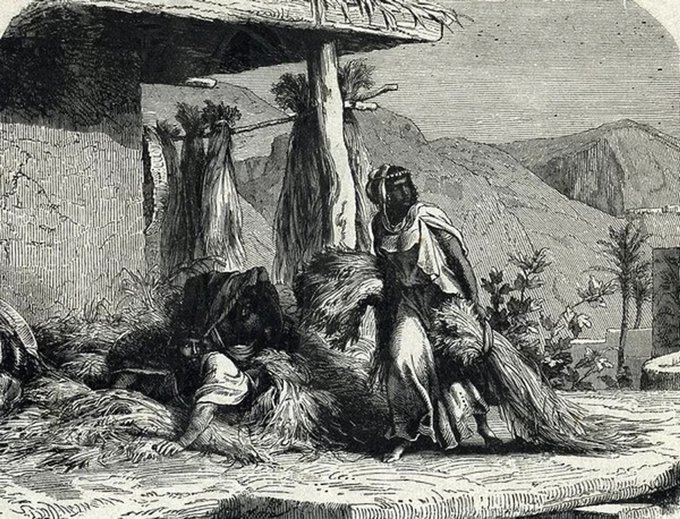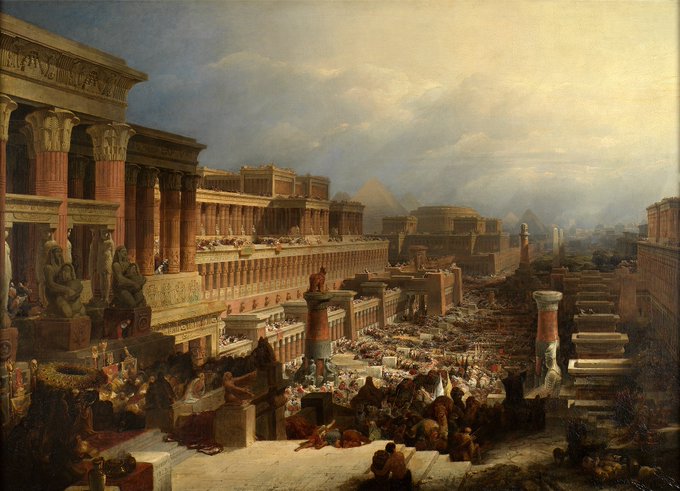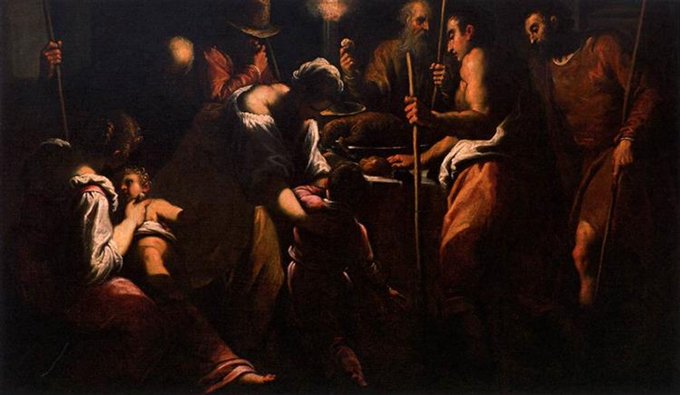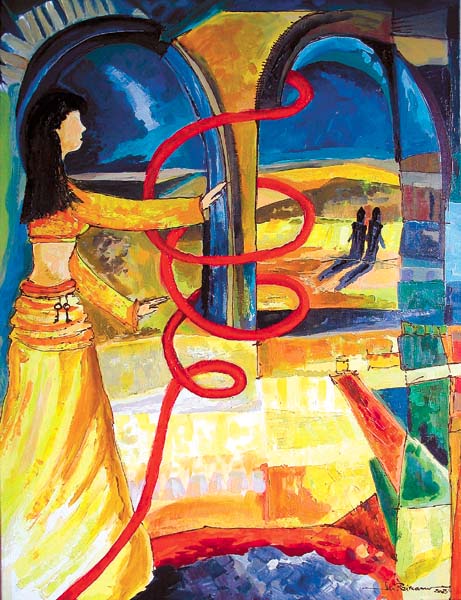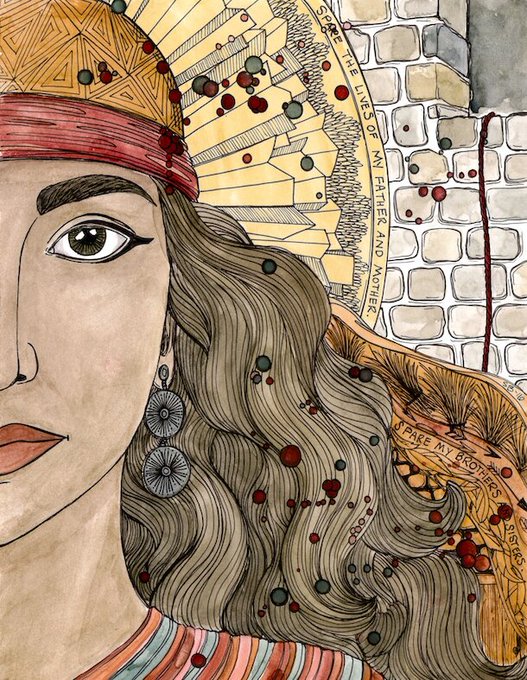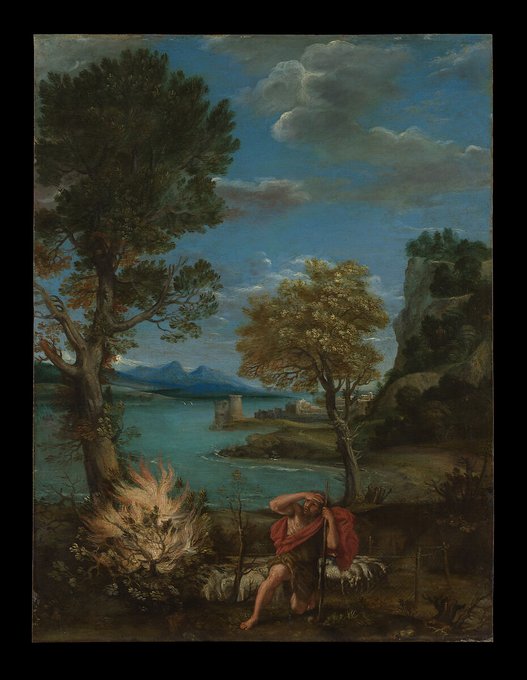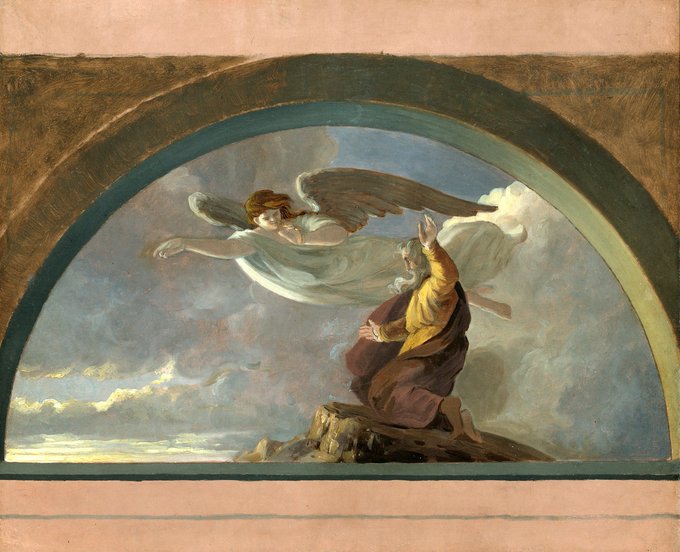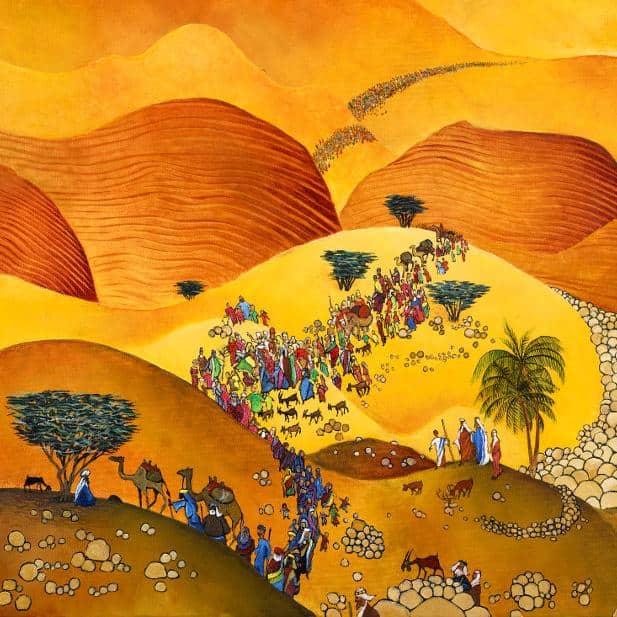Her life was dark. Bleak. Oppression was her daily bread. But then…she starts to hear stories. Tales she hardly dared believed. Tales of a God who cared. A God who punished the Pharaoh of Egypt and the local Amorite tyrants alike for their treatment of a vulnerable people. 33
Dared she believe such stories? The people this God had rescued were so far away, after all. Until one night...there they were! Israelites! On her doorstep! She had to know. And so, before they could even sleep (2:8), she confirms with them these tales that gave her hope. 34
In that moment, Rahab makes her decision—she will join herself to this God of hope and freedom. But as she makes her declaration, we're meant to wonder. Will God accept it? Hadn't God, in Exodus 34, warned Israel against covenanting with the prostituting (z-n-h) Canaanites? 35
Here's where Joshua masterfully alludes to yet another story: "[Rahab] took the two men and she hid them (va-tizpeno)" (Josh 2:4). Scripture has lots of different words for "hide". Why use this one? The answer is because of another place in Scripture it appears: The Exodus. 36
When Moses's mother gave birth to him—in the face of Pharaoh's decree that all Hebrew baby boys be killed—Scripture tells us "she hid him (va-tizpenehu) for three months" (Exodus 2:2). These—Joshua 2 and Exodus 2—are the only two places in the Bible we find this phrase. 37
Joshua is telling us that Jericho is not ONLY Sodom. It's Egypt as well. And just as God heard the Israelites' cries, He has heard Rahab too. But there's more... So, like, remember how on the eve of the Exodus God instructs the Israelites how to survive Egypt's destruction? 38
He tells them to place "a sign ('ot) for you on the houses where you live" (Exod 12:13). What is the sign? Each family must adorn their house with red (blood), gather their family together, and stay inside lest they be destroyed along with the populace around them (12:22). 39
Now back to Rahab. On the eve of HER liberation she asks the spies, "Give me a sign ('ot) of good faith". What is the sign ('ot)? You got it! ...Adorn your house with red, gather your family, and stay inside lest you be destroyed along with the populace around you (2:18-19). 40
Yes, Canaanite society was cruel. Oppressive. God would not suffer it in His chosen Land. But Rahab? The downtrodden harlot? The one who suffered that oppression? The one who heard the God of the Exodus and dared to believe in Him? She experiences her very own Exodus! 41
In fact, Rahab's Exodus is the perfect bookend to God's liberation of the Israelites. How? Well, think back to the very first thing God says to Moses at the burning bush: "I have observed the misery of my people who are in Egypt; I have heard their cry..." (Exod 3:7). 42
In the very next verse, God proclaims that He will deliver the Israelites from bondage and—just as He assured Abraham, Isaac and Jacob—bring them to the Promised Land. How does He describe that Land? "A good and spacious land, a land flowing with milk and honey" (3:8). 43
See that word "spacious"? Know what that is in Hebrew? "Rechavah". From the root r-h-v. Know what other word has that exact same root? Rahab (in Hebrew "Rachav")! Her name, too, means "spacious". The Promised Land, therefore, is quite literally "the Land of Rahab". 44
Rahab’s own name, it turns out, reflects the very first promise God made to His people in Exodus to implant them in the Land of Israel. So to return to our original question: how does a Canaanite harlot end up the hero of Joshua's story? Well...how could she not? 45
Rahab, like Lot, was trapped in an oppressive pagan society. But unlike Lot, whose complacency left him deaf to God's salvation, Rahab dreamed of something better—a God who loved justice and liberty. So God's promises to the people of Israel were for Rahab a beacon of hope. 46
In dreams, though, begin responsibilities. When the time came, would Rahab respond? When God knocked, would she answer? Her answer was a resounding yes. So God redeemed her just as He redeemed His people from Egypt, implanting her in the "spacious" Land that bears her name. 47
Rahab, then, is the mother of those who dare to believe. That's why, in the end, "she dwelled in Israel to this very day" (Joshua 6:25). Of course. Where else would she make her home other than among the very people who first taught the world to hope? 48
P.S. Thanks so much to @zenahitz for first enabling me to do these threads! And if you liked this, check out the episode I just did with @EliLanger and @LivingLchaim on how the Bible thinks about technological innovation and economic growth. Good stuff! https://youtu.be/-fOF3gIdLds?s...

